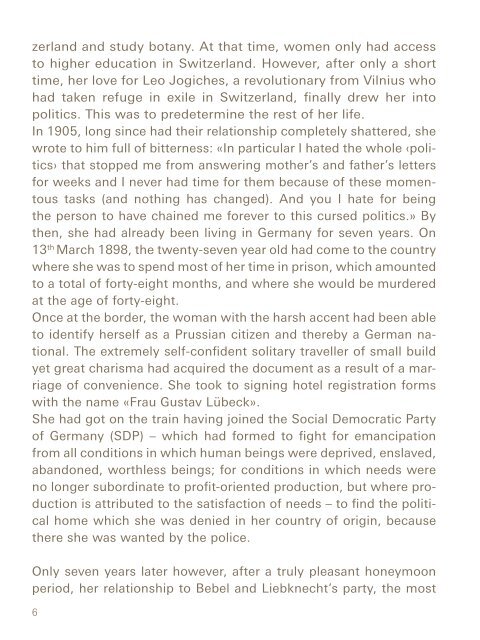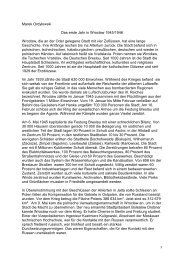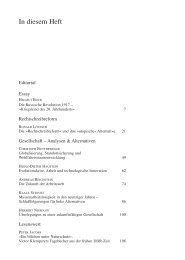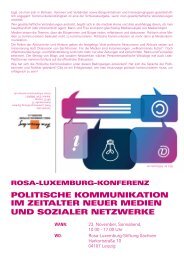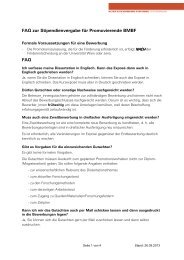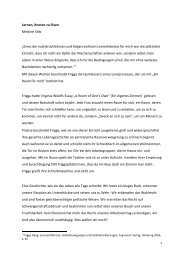Rosa Luxemburg Foundation Booklet - Rosa-Luxemburg-Stiftung
Rosa Luxemburg Foundation Booklet - Rosa-Luxemburg-Stiftung
Rosa Luxemburg Foundation Booklet - Rosa-Luxemburg-Stiftung
Create successful ePaper yourself
Turn your PDF publications into a flip-book with our unique Google optimized e-Paper software.
zerland and study botany. At that time, women only had access<br />
to higher education in Switzerland. However, after only a short<br />
time, her love for Leo Jogiches, a revolutionary from Vilnius who<br />
had taken refuge in exile in Switzerland, finally drew her into<br />
politics. This was to predetermine the rest of her life.<br />
In 1905, long since had their relationship completely shattered, she<br />
wrote to him full of bitterness: «In particular I hated the whole ‹politics›<br />
that stopped me from answering mother’s and father’s letters<br />
for weeks and I never had time for them because of these momentous<br />
tasks (and nothing has changed). And you I hate for being<br />
the person to have chained me forever to this cursed politics.» By<br />
then, she had already been living in Germany for seven years. On<br />
13 th March 1898, the twenty-seven year old had come to the country<br />
where she was to spend most of her time in prison, which amounted<br />
to a total of forty-eight months, and where she would be murdered<br />
at the age of forty-eight.<br />
Once at the border, the woman with the harsh accent had been able<br />
to identify herself as a Prussian citizen and thereby a German national.<br />
The extremely self-confident solitary traveller of small build<br />
yet great charisma had acquired the document as a result of a marriage<br />
of convenience. She took to signing hotel registration forms<br />
with the name «Frau Gustav Lübeck».<br />
She had got on the train having joined the Social Democratic Party<br />
of Germany (SDP) – which had formed to fight for emancipation<br />
from all conditions in which human beings were deprived, enslaved,<br />
abandoned, worthless beings; for conditions in which needs were<br />
no longer subordinate to profit-oriented production, but where production<br />
is attributed to the satisfaction of needs – to find the political<br />
home which she was denied in her country of origin, because<br />
there she was wanted by the police.<br />
Only seven years later however, after a truly pleasant honeymoon<br />
period, her relationship to Bebel and Liebknecht’s party, the most<br />
6


